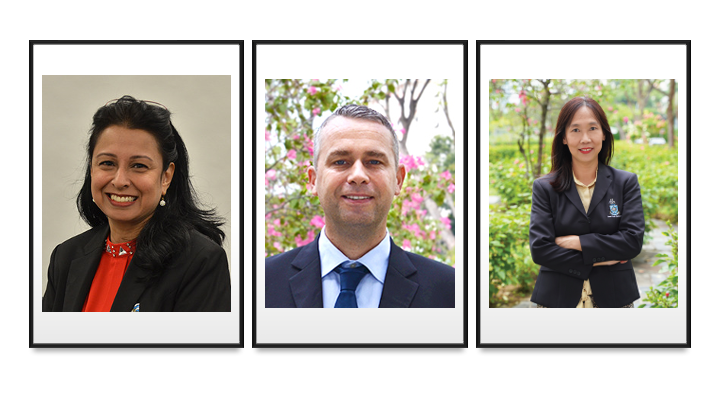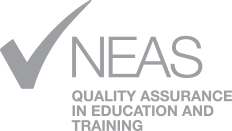
NEAS congratulates Mr. James King, Ms. Li Mien Han (Joanne), and Ms. Pamela Arumynathan from James Cook University (JCU), Singapore, on completing the NEAS Capstone Course: Master Practitioner in ELT.
The Master Practitioner in ELT is the NEAS Capstone Course. It is suitable for the ELT professional who is working, teaching or studying in the ELT field and has gained considerable experience in applying quality assurance principles in their professional practice. This course provides opportunities to demonstrate and apply knowledge, skills and experience with the NEAS Quality Assurance Framework to the ELT context.
Mr. James King’s capstone project explores the topic of online self-directed grammar and vocabulary practice materials to enhance students’ writing accuracy. The project addresses a critical need for improved English language proficiency in a blended learning environment, aiming to enhance language skills and tackle academic writing challenges for international students. It aligns with the NEAS Quality Assurance Framework, incorporates task types inspired by Cambridge exams, and demonstrates successful student trials, emphasising adaptability and commitment to learning outcomes.
In her capstone project, Ms. Li Mien Han addresses the reading comprehension needs of students in the English Language Preparatory Program (ELPP) at JCU Singapore. Through the incorporation of six supplementary reading practices, the project has yielded positive outcomes, including heightened interest, improved reading performance, and increased motivation. This aligns seamlessly with the NEAS Quality Assurance Framework.
Ms. Pamela Arumynathan’s project delves into academic writing nuances among pre-sessional international English for Academic Purposes (EAP) students at JCU Singapore. Aligned with the NEAS Quality Assurance Framework, the study uncovers insights into paraphrasing and plagiarism, shedding light on participants’ cultural backgrounds and prior learning experiences. The results emphasise areas for improvement, particularly in fostering a deeper understanding of foundational concepts and discourse dimensions of source use. This research contributes valuable knowledge to enhance international students’ academic writing skills, promoting cross-cultural awareness and alignment with quality assurance standards.
February 2024
